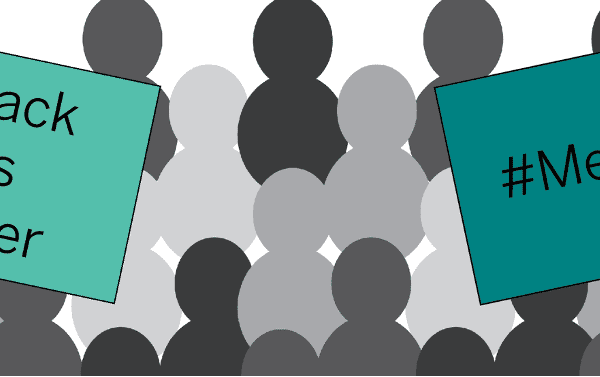

Cheikh Tourad Traoré
State-Nations in West Africa were born in the late 1950s and early 1960s. This makes them comparatively young states. In this respect, any opportunities including social media should be perceived as a potential way to contribute to West African states’ consolidation.
In International Relations Literature, many authors have distinguished two functions without which a state might fail its missions. These are the functions of fulfilling internal political demands on the one hand, and the obligation to address external threats on the other hand. A layer of complexity for post-colonial states consists in the fact that, in some cases, shared contemporary global values can be conflicting with the values and beliefs of the (post-)colonial world, as epitomized Death and the King’s Horseman by Nobel Prize-winning playwright Wole Soyinka.
To conform to the Article 19 of the United Nations Universal Declaration of Human Rights and given that West African youth cannot be stepped back from social media use, their governments should accommodate with the situation, by guiding them towards the many opportunities to thrive in civic leadership, public management, and for-profit business, on these platforms
If we take the case of social media, we realize that nowadays cultures are impacting one another. To influence national or international policymakers’ agenda, we have witnessed these last years the trending of keywords (hashtags) such as #MeToo and #BlackLivesMatter.
Far from being top-down or North-South political expressions, these keywords have engaged people from the North and the South, as well as ordinary citizens, global community of activists, political men and women. We remember during the kidnapping of Nigerian schoolgirls by Boko Haram that “Michelle Obama posted an image of herself on social media, posing with a white sheet of paper that said: “#BringBackOurGirls”.”
More recently, we have noticed the trending on social media of keywords (hashtags) such as “#EndSars”, “#FreeSenegal”, and “#WhatsHappeningInNiger”.
The two first keywords have been used by social media users to denounce the Repressive State Apparatuses of Nigeria and Senegal, and to call for more rule of law and democracy. The last keywords were used as a mean to shed light on internet censorship by the Government of Niger.
Far from being top-down or North-South political expressions, these keywords have engaged people from the North and the South, as well as ordinary citizens, global community of activists, political men and women. We remember during the kidnapping of Nigerian schoolgirls by Boko Haram that “Michelle Obama posted an image of herself on social media, posing with a white sheet of paper that said: “#BringBackOurGirls”
In light of the aforementioned examples, one cannot overstate that social media is changing the face of political mobilization in West Africa, while giving to the people of the region an opportunity to take part in the global public space debate, anytime they need to do so.
Though, governments in the ECOWAS region have been designing rules and regulations on social media, their efforts are mostly understood in terms of social media users’ self-censorship or persecution as illustrates a law passed by The Gambia in 2013 to punish internet use to “spread dissatisfaction with the government”. Another example worth recalling is when the government of Senegal restricted social media applications amid protests following the arrest of Ousmane Sonko, Senegalese opposition leader. That restriction did not only affect the demonstrators, but also impacted those using internet for other businesses.
Instead of tightening rules and laws on social media, West African governments will gain more in incentivizing positive use of social media to capture the dividend of the fourth industrial revolution for their people. This objective can be achieved through an integration of regional social media courses to the curricula of schools, vocational institutes and universities in West Africa.
To conform to the Article 19 of the United Nations Universal Declaration of Human Rights and given that West African youth cannot be stepped back from social media use, their governments should accommodate with the situation, by guiding them towards the many opportunities to thrive in civic leadership, public management, and for-profit business, on these platforms.
Some initiatives like “Educating for Peace” carried out by Timbuktu Institute, Polaris Asso, and Swiss Embassy in Dakar exemplify how non-state and state actors can use social media channels to transform youth into agents of change. Such initiative could be replicated and adjusted to support the ECOWAS of People vision, which seeks “to create a borderless, peaceful, prosperous and cohesive region, built on good governance and where people have the capacity to access and harness its enormous resources through the creation of opportunities for sustainable development and environmental preservation.”
From a systemic perspective inspired by David Easton, we will conclude by arguing that to become reality, ECOWAS political community vision needs support from the people of West Africa, hence the importance to coordinate at a regional level on a social media policy framework to commit the youth, who are the next generation of West African policy makers, to the ECOWAS of People vision.
Source photo : Baylor Lariat
Cheikh Tourad TRAORE is a Specialist in International Relations whose research focuses on benchmarking political strategies to prevent state fragility in the western Africa region.
He is currently working as Communications Coordinator at AKADEMIYA2063, an International Non-Governmental Organization in the field of Agriculture Development and Food Security.
